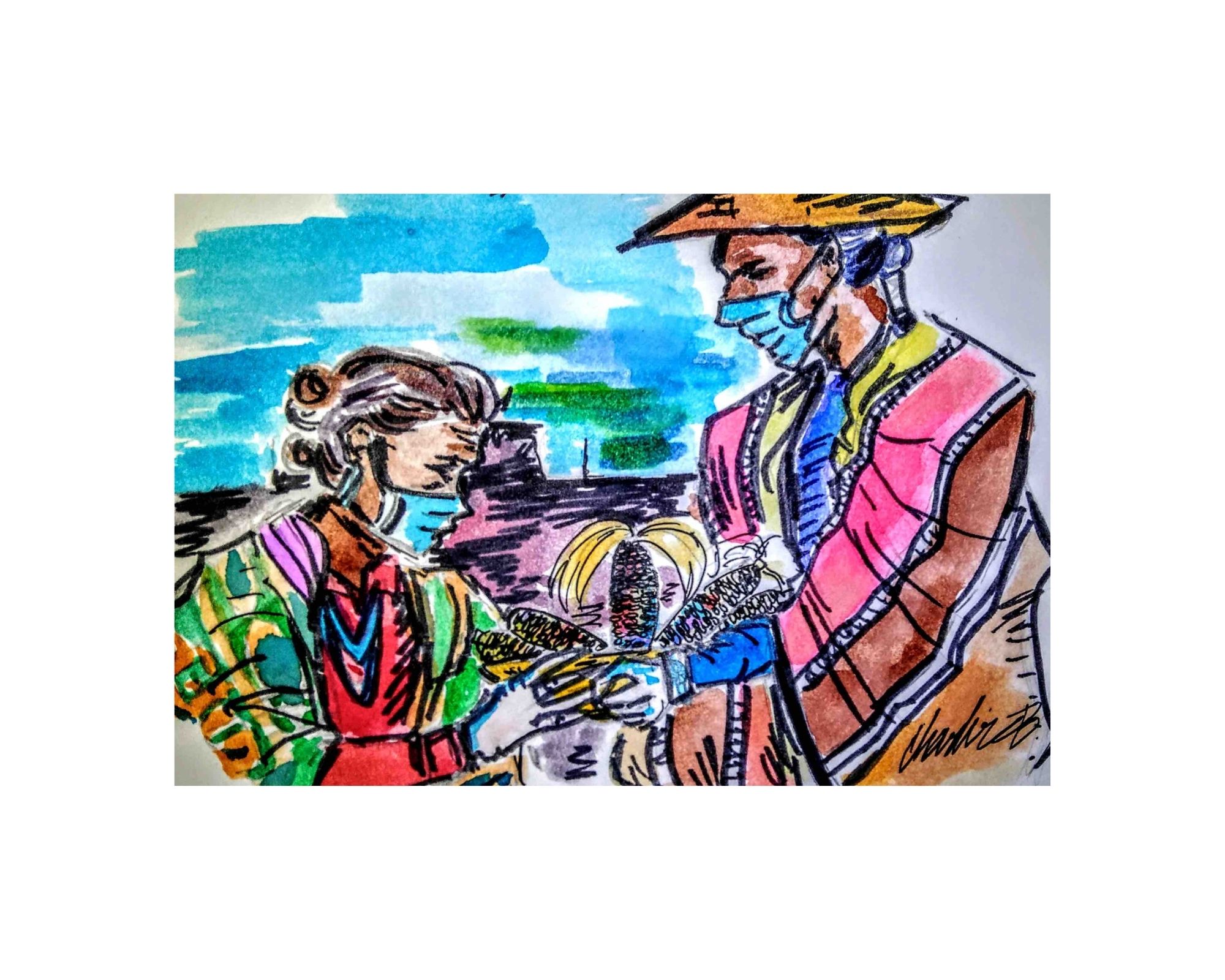Harvard Indigenous-Irish Event Showcases Enduring Ties in Pandemic
By Nancy J. Coombs
The Indigenous Peoples Case Study event on February 24 – part of Harvard Alumni Allyship Series – featured a multi-century Indigenous-Irish relationship. In appreciation of the Choctaw Nation’s $170 gift to Ireland during the Potato Famine, Irish people have donated in large numbers to the Navajo and Hopi Families COVID-19 Relief Fund. Speakers included HAA Elected Director and former Navajo Nation Attorney General Ethel Billie Branch, founder of the fund, Choctaw Nation Chief Gary Batton, Irish historian Turtle Bunbury, and Alex Pentek, sculptor of Kindred Spirits Monument memorializing the Choctaw gift. More than 300 people participated online, the Harvard Club of Toronto having joined over 50 co-sponsoring Clubs and Shared Interest Groups, believed to have set a record for most sponsors of a Harvard alumni event.
University president Lawrence S. Bacow, in his letter to members of the Harvard community following George Floyd’s death, wrote, “Those of us privileged to work or study at a place like this bear special responsibilities. As Luke teaches us, from those to whom much is given, much is expected.” Around that time, Robert Manson – HAA Regional Director and former Harvard Club of Ireland President – conceived of the allyship series, highlighting Harvard alumni’s stories to “encourage people to think about the life experience of people not in our own community,” he said, “ as allyship is about caring when you don’t have to care.” An article in The Harvard Gazette about Columbus Day from an Indigenous perspective gave Manson the idea for this event following initial ones in the fall. He worked with Matthew Hegarty, Harvard Club of Boston President, and Hannah Kilgore, Harvard Club of Ireland President, to create a platform for Allyship across Harvard’s global alumni network.
Former HAA President Alice Hill – one of the event’s key organizers who grew up in Inuvik, Northwest Territories, and is now based in Australia - said, “The 1847 Choctaw gift to the Irish people during the famine was itself extraordinary, particularly when you consider that it was made at the end of the Trail of Tears, when the Choctaw had nothing more than the pennies in their pockets. That the Irish people are now paying that gift forward to the Navajo and Hopi to support them through the pandemic lifts it to another level.”
The Allyship team has advocated for recognition of the traditional owners of the land on which Harvard is located – the Massachusett people—and raised awareness of First Nations. A Canadian website was used at the event’s start: Hill, after acknowledging Harvard’s First Nations’ origins, invited attendees to use Zoom’s chat function to do the same for the land where they were located, many noting that it was “the first time they had become aware of their local traditional owners,” Hill said.
Branch, in her remarks, outlined how the Hopi and Navajo Nations have been disproportionately affected by COVID-19. The Irish response to her fund has been “profound and amazing”, she said, and “allyship is empowering at the local level.” She talked about grassroots mobilization relieving food insecurity and water scarcity. Manson indicated that “the Allyship series will continue to elevate stories from within our Harvard alumni community that focus on people from marginalised communities. The intention in doing so is to serve as a constant reminder of the work required to move towards a more just and equal society.” The next one being planned will focus on people with disabilities. To learn more and/or donate to the Navajo and Hopi Families COVID-19 Relief Fund.
Artwork created for the Navajo and Hopi Families COVID-19 Relief Fund
Artist: Charlize Branch

